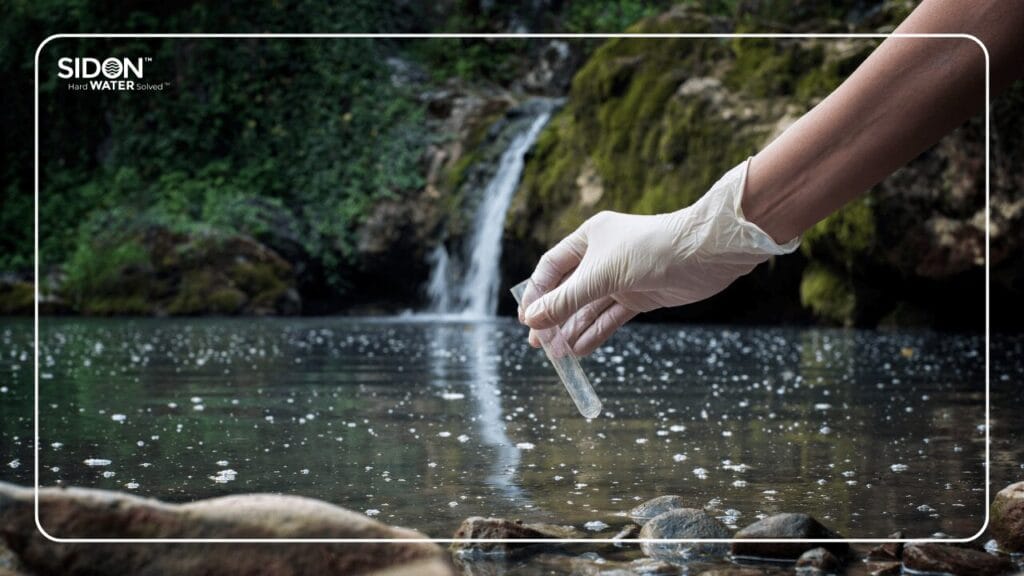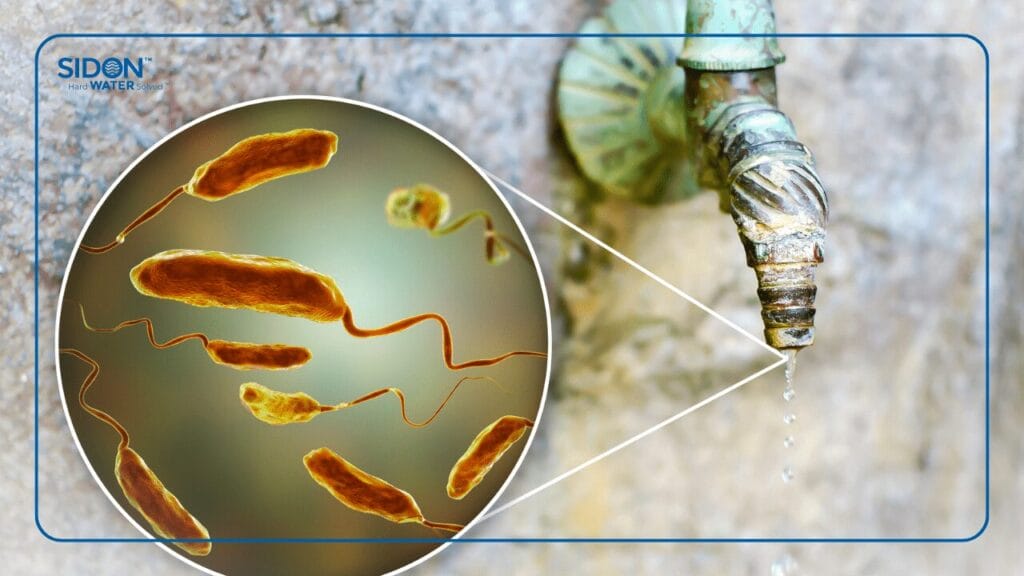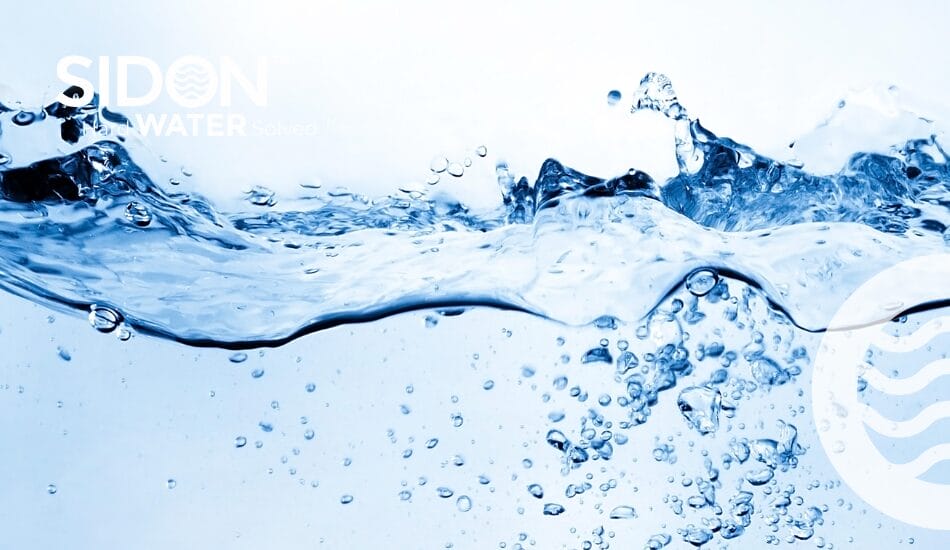Water quality is important for the health and well-being of both humans and the environment. Quality water keeps us healthy, protects nature and helps businesses run smoothly.
In this blog post, we’ll talk about what water quality is, why it matters, and how you can test and improve it.
We’ll also explain how special water treatment systems like the Integro™ can help make your water better and safer to use and benefit your business.
What is Water Quality?
Water quality refers to the chemical, physical, and biological characteristics of water, usually in relation to its suitability for a particular purpose such as drinking, swimming, or irrigation. Good water quality is important for the proper functioning of ecosystems, human health and industrial processes.
Different factors can affect water quality, like natural processes and human activities. For example, minerals from soil and plants can change the water. Human actions like farming and industrial work can introduce pollutants into water and make it less clean.

What are the 4 types of water quality?
According to the United Nations Environment Programme, there are four types of water quality:
- Potable water: This water is safe to drink, tastes good and can be used for household purposes.
- Palatable water: Palatable water looks and tastes good and has no harmful chemicals.
- Contaminated (Polluted) water: Contaminated water contains unwanted substances like chemicals or bacteria, making it unsafe for drinking or domestic use.
- Infected water: It contains harmful pathogens that can cause diseases.

The Importance of Water Quality
Water quality is very important for several reasons. Let’s look at how it affects human health, environmental protection and even the economy.
Human Health: Clean water is essential for drinking, cooking, and cleaning. If water is contaminated, it can carry harmful bacteria and chemicals that cause diseases and infections.
Drinking polluted water can lead to serious health issues like stomach infections, neurological problems, and even reproductive issues.
Environmental Protection: Clean water is crucial for the health of our environment. Fish, plants and other wildlife depend on clean water to survive. When water is polluted, it can kill these organisms and disrupt the balance of ecosystems. Polluted water can lead to the death of fish and other aquatic life, harming the biodiversity of our rivers, lakes, and oceans.
Economic Impact: Good water quality is essential for many industries, such as agriculture, manufacturing, and hospitality. Farmers need clean water to grow crops and raise livestock. Factories use water in their production processes and clean water is crucial for maintaining equipment and product quality. Poor water quality can lead to damage to equipment and loss of productivity. Ensuring high water quality is vital for the economic stability of these sectors.
How to Test Water Quality
Regular water quality testing ensures that water is safe for its intended use. There are several methods of water testing, depending on what you want to find out. Each method gives us important information about different aspects of water quality, helping ensure the water is safe for its intended use.
Here are some methods to test water quality:
Chemical Tests: These tests measure levels of chemicals in the water like nitrates, phosphates, heavy metals and pesticides. They help identify harmful pollutants. For example, high levels of nitrates can come from fertilizers and can be dangerous, if consumed.
Physical Tests: These tests check the water’s physical traits such as temperature, pH, cloudiness (turbidity), and conductivity. Temperature affects how water can be used and what organisms can live in it. pH tells us how acidic or basic the water is, which can affect both the environment and our health. Turbidity measures how clear or cloudy the water is, which can indicate the presence of particles that may carry pollutants. Conductivity measures how well water can carry an electric current, which can indicate the level of dissolved salts and minerals.
Biological Tests: These tests detect microorganisms like bacteria, viruses, and protozoa. They are crucial for finding contaminants that cause diseases. For example, bacteria like Legionella can cause serious illnesses if present in drinking water. Biological tests help ensure that water is safe from pathogens that can make people sick.
Factors Affecting Water Quality
Several factors can impact water quality, including:
Pollution:
Waste from factories, farms, sewage, and city runoff can introduce harmful substances into water. These substances have heavy metals like lead and mercury, chemicals like pesticides, nutrients like nitrogen and phosphorus, and germs like bacteria and viruses. When these pollutants enter water bodies, they can degrade water quality, making it unsafe for drinking, swimming, and supporting aquatic life. For example, nutrients from fertilizers can cause algae blooms, which reduce oxygen in the water and harm fish.
Natural Processes:
Natural events such as erosion, sedimentation and natural disasters can affect water quality. Erosion happens when soil is washed away by rain or wind, which can then end up in rivers and lakes. This increases sediment in the water, making it cloudy and reducing sunlight for aquatic plants. Natural disasters like floods and hurricanes can cause large amounts of debris and contaminants to enter water bodies, quickly changing water quality. For example, a flood can wash pollutants from land into water systems and create a sudden increase in contaminants.
Human Activities:
Actions like deforestation, mining and urban development can have significant effects on water quality. Deforestation removes trees that help hold soil in place, leading to more erosion and sediment in water. Mining can introduce toxic chemicals and heavy metals into nearby water bodies. Urban development, such as building roads and houses, increases the amount of impermeable surfaces, leading to more runoff and pollutants entering water systems.
How to Enhance the Water Quality of my Water Systems?
Improving water quality is crucial for homes and businesses to ensure clean, safe, and efficient water use. Effective water conditioning can significantly improve water quality by addressing problems like limescale build-up, rust and harmful bacteria.
Water conditioning systems keep water clean by preventing mineral deposits and reducing corrosion. These systems are especially important in industries like healthcare and hospitality, where water quality affects safety and efficiency.
One advanced solution is the Integro™ system. The Integro™ uses cutting-edge technology to prevent and remove stubborn limescale by injecting electrons into the water. This process disrupts the bonds between minerals, ensuring they stay in solution and don’t form limescale, regardless of temperature or pressure. By keeping minerals neutral, the Integro™ reduces rust and corrosion, making your water systems last longer and work better.
Maintaining high water quality is critical to preventing bacteria and ensuring safe, efficient operations. The Integro™ helps control bacteria by removing limescale, which can be a breeding ground for harmful bacteria like Legionella. By addressing these issues, the Integro™ keeps your water systems clean, safe and efficient.

Visit Sidon Water to learn more about our advanced water treatment systems and how we can help you maintain the highest standards of water quality. Last but not least, do not hesitate to contact us for any inquiries. Click here to book a call with our team today!

